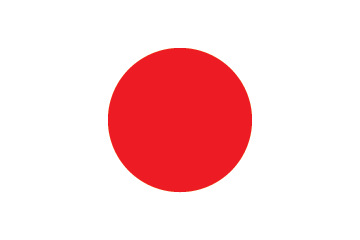
Compulsory Education Age
Children ages 7 to 14 are subject to the federal compulsory attendance law. High school is not mandated.
Estimated Number of Homeschoolers
Unknown
Legal Status
In Japan, home schooling is not formally permitted. The School Education Law obliges parents to send their children aged seven to fourteen to primary and lower secondary education schools. High school is not mandated. Parents who violate this provision
can be punished with a fine (Article 16, 17, 144). Under the School Education Law, “schools” are defined as those prescribed in Article 1. “Home schools” are not included in that definition.
However, there is a documented number of children who are absent from schools for long periods of time. In the case of lower secondary school, in 2003, the number of students who do not attend school for 30 or more days out of a year because of “school-phobia” (which used to be called “school-hatred”) was 102,126—about 2.7% of the total number of the students. At the elementary level, that number was 24,086, which is about 0.3% of the total number of the students (Ministry of Education 2005, 19, 65-66, 75). Under current education reform trends that emphasize “diversity” and “individuality,” public sentiment toward these children has become tolerant.
A reflection of this is that some municipalities have adopted measures to support students who prefer to study at home. For example, in 2002, Shiki City in Saitama prefecture began an initiative that periodically sends teachers to family homes with the
purpose of assisting children in their studies. Also, some researchers in Japan argue that homeschooling should be formally constituted as an alternative and acceptable schooling option. Advocates of homeschooling claim that it is important not only
for the education of the children who are not fit for the daily activities of ordinary schools, but also for the parental right to education.
In spite of these arguments, however, homeschooling has not yet become an important item on Japan’s reform agenda. Criticism and worry still exist around the issue of leaving the education of children solely to parents. Indeed, even within arguments
for parental rights, emphasis is placed on “participation” and “choice”; that is, education reformers are less concerned with the issue of homeschooling than they are with ensuring that parents are participants in school decisions
and have the freedom to choose schools for their children.
Contact Information
CHEA of Japan
Contact: Hiro Inaba, President
E-mail: HiroInaba@cheajapan.com or office@cheajapan.com
Website: cheajapan.com
NPO Homeschool Association of Japan (HoSA)
Japanese name: Nihon ho-mu suku-ru shien kyoukai
President: Kozo Hino
Contact: Takahiro Sasaki (Director of Foreign Affairs)
E-mail: info@homeschool.ne.jp
Website: homeschool.ne.jp
Twitter: twitter.com/NPO_HoSA
Facebook: facebook.com/homeschool.HoSA/

